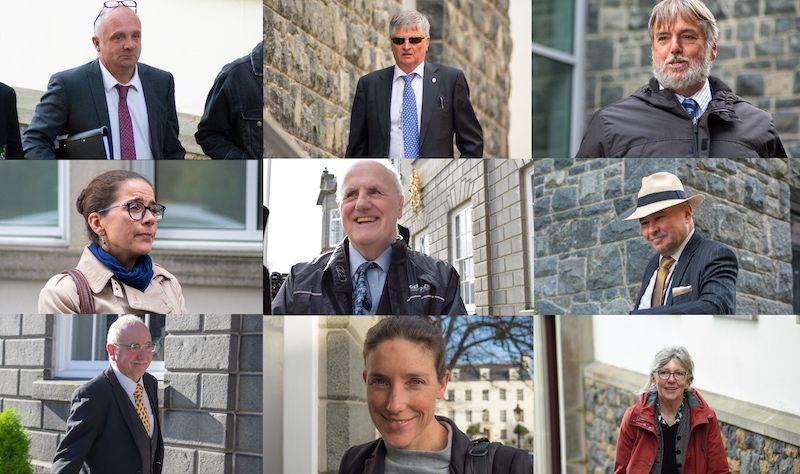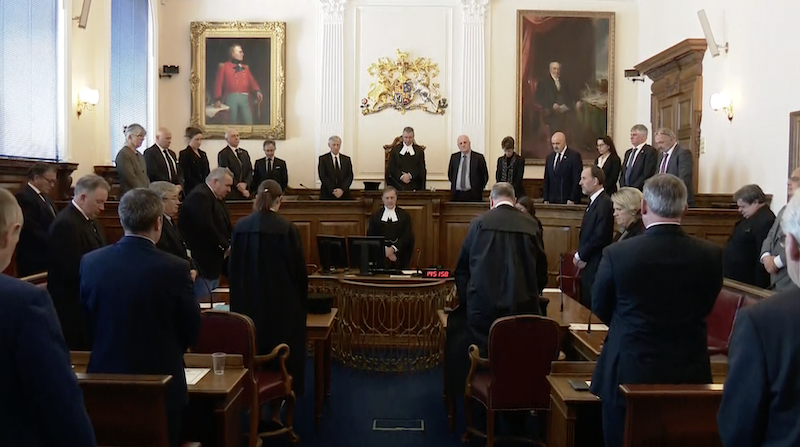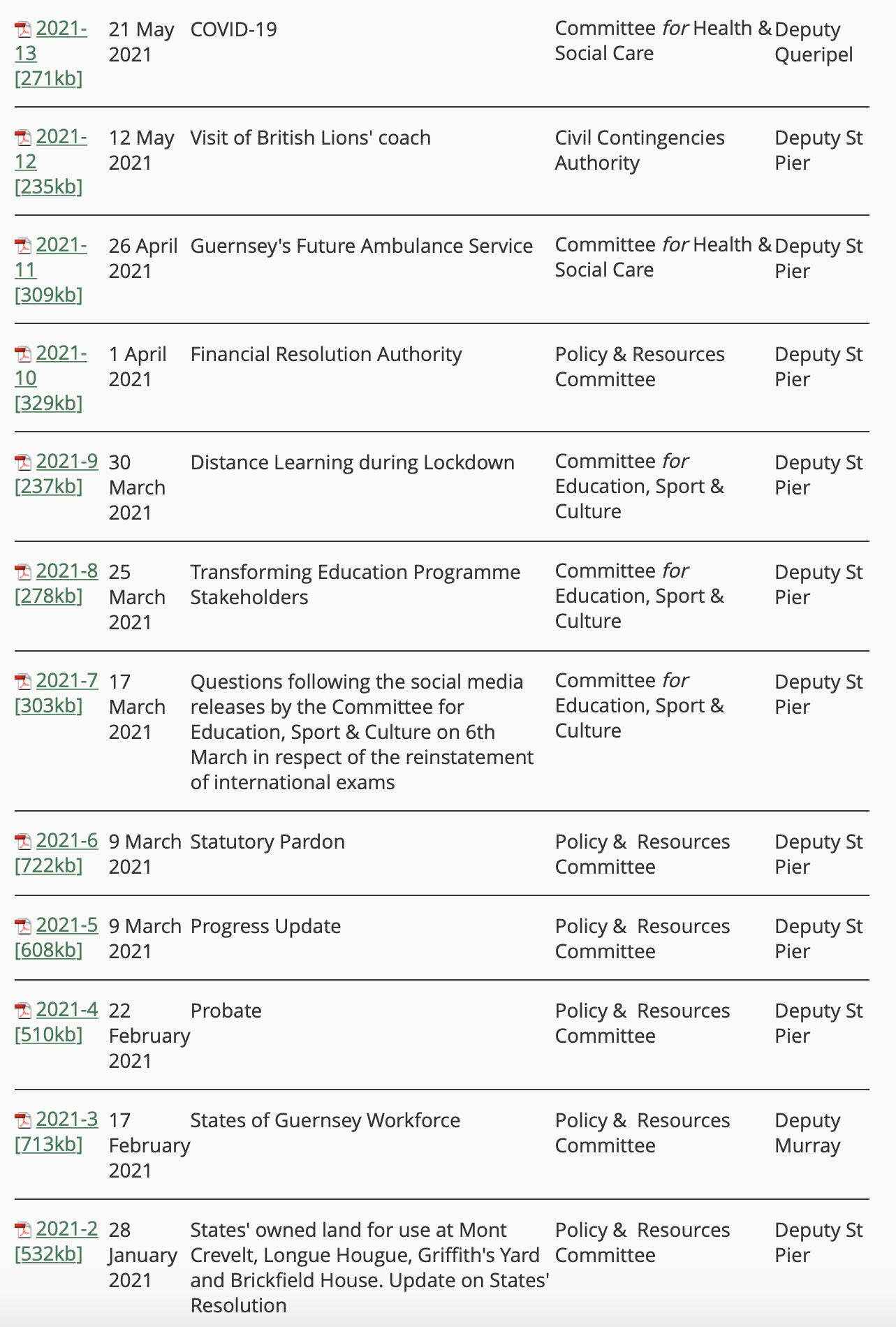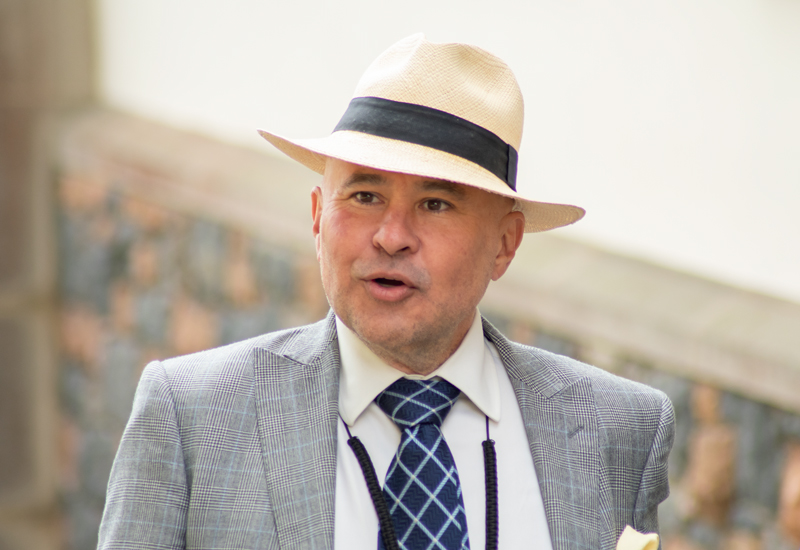


Some questions asked in response to presidential statements are "spurious", "roving" and eat up officer time, according to some committee heads, while others told Express that the open nature of questions is "essential" and makes sure that presidents know their mandates.
States Assembly & Constitution Committee President Carl Meerveld revealed last week that he had received suggestions from "senior politicians" that the number of presidential statements in the Assembly should be reduced.
No committee president has directly told Express that they believe these should be pared back to once a year, although some have expressed concerns with the current approach and some of the "spurious" questions that take up political and officer time.
Under the current rules of procedure, presidents of States committees are required to give twice-yearly updates to the Assembly on their committee's work. This is then followed by open questions from States colleagues, which can be asked about any topic within that committee's mandate.
"They are a valuable opportunity to ask questions of presidents – and are therefore an important part of our scrutiny function," said Environment & Infrastructure President Lindsay de Sausmarez.
"I actually think they’re good for internal governance too: if you know you can be questioned on anything in your mandate, you make sure you’re properly across it."

Pictured: There is a rota for presidential updates twice a year in the States' debating chamber.
Deputy de Sausmarez said reducing their frequency "would be a backwards step", in her opinion. "I’m struggling to understand why anyone would propose such an idea – if indeed anyone has.
"These statements are an excellent opportunity as a member of the Assembly to find out about the work taking place in other committees, and as a President they’re a great opportunity to explain to colleagues and the public what your committee has achieved and is working on."
Health & Social Care President Al Brouard told Express that he is "happy to accede" to general update statements if they are required of him and are considered useful. However, he does not believe they should be used a first point of contact.
"Members and indeed the public can and do ask questions throughout the year on subjects of concern, so there is no need for members to save them for the question-time after a statement from a particular committee," he replied.
"Members in my view should be encouraged to contact committees with their concerns and as I have mentioned in the past questions in the assembly, apart from some exceptions, should be the last tools to be considered in the deputies tool box and not the first."

Pictured: The written Rule 14 questions posed to committee presidents since the start of the year. Chief Minister Peter Ferbrache, who has been a regular recipient of questions from his predecessor Deputy Gavin St Pier, said the questions ought to be "more purposeful".
Scrutiny President Yvonne Burford disagreed, saying that it is important that this questioning happens in a public arena.
"I do not think presidents’ statements should be reduced. If anything the length of the statement and the time available for questions could be increased. Deputies are able to ask questions on any aspect of the mandate of the committee and I think that is correct."
Deputy Peter Roffey, who heads up Employment & Social Security and the States Trading Supervisory Board, gave a similar response. "I definitely would not like to see statements reduced because I feel they play an important role in our democratic process. The ability to challenge and be challenged is crucial to good government."
Economic Development President Neil Inder said the timetabling of the first couple of statements could be looked at, as he generally concurred with Deputy Brouard's points.
"If I remember correctly I had a presidents' update about four weeks after my election to the post and having only sat once or twice as a committee. It was largely a repeat of the election piece."
Today's States meeting will see committee presidents field no less than six sets of subject-specific questions from the floor of the House. Deputies also have the option of written, Rule 14 questions, which must be answered within two weeks. For Policy & Resources President Peter Ferbrache, it is these questions that need to be tightened up.
"My current view is that I do not mind making twice a year general statements," he told Express. "It does give States members the chance to ask questions across the whole of the mandate of a committee.
"What I do think is that written questions should be more focussed. I would not want to restrict them but would wish, perhaps forlornly, that they are more purposeful."

Pictured: Sacc President Carl Meerveld said his committee had organised a session to “illustrate best practice” of contacting committee presidents directly in the first instance, before submitting formal Rule 14 or Rule 11 questions if they do not get the answers.
Home Affairs President Rob Prow said that both statements and questions in the Assembly are an important parliamentary tool. "They greatly enhance the democratic process and I therefore fully support their place within our Rules. Both mechanisms hold presidents and their committees to account.
"However I do have some sympathy with those who feel that presidents having to make such statements bi-annually is a little too onerous as they do require committee time and officer resource and in reality they will have more impact and be less repetitive if they are presented once a year.
"There are other avenues, such as Scrutiny Management hearings, media statements and public presentations which are now common place and very well used to enhance transparency and political engagement. Frankly I will support the wishes of the Assembly on this issue."
Education, Sport & Culture President Andrea Dudley-Owen, who is delivering a statement herself this morning, said: "I think the statements are really useful. With regards to questions, there are some that are genuinely trying to find out information and there are some that are rather spurious and could do with being more mindful of committee and officer time."
Sacc President Carl Meerveld told Express he had received "around half a dozen" representations from a mixture of committee presidents and other States members suggesting that the frequency of general update statement could be halved to once a year. It's a view he has some sympathy with.
"As a businessman I would like to see more time spent on the important decisions. While I fully appreciate the democratic benefits of statements and questions I would prefer for them to be more focused and concise.
"I think there is a general sentiment that the powerful parliamentary tools of questions are used effectively and efficiently. There is no suggestion that we would remove them completely.
"We still have these parliamentary tools that can be heard at any given time and they come in with a focus and it is open to the whole of the assembly to ask supplementary questions on a subject, instead of the general roving manner of questions on a president’s statement."
Comments
Comments on this story express the views of the commentator only, not Bailiwick Publishing. We are unable to guarantee the accuracy of any of those comments.